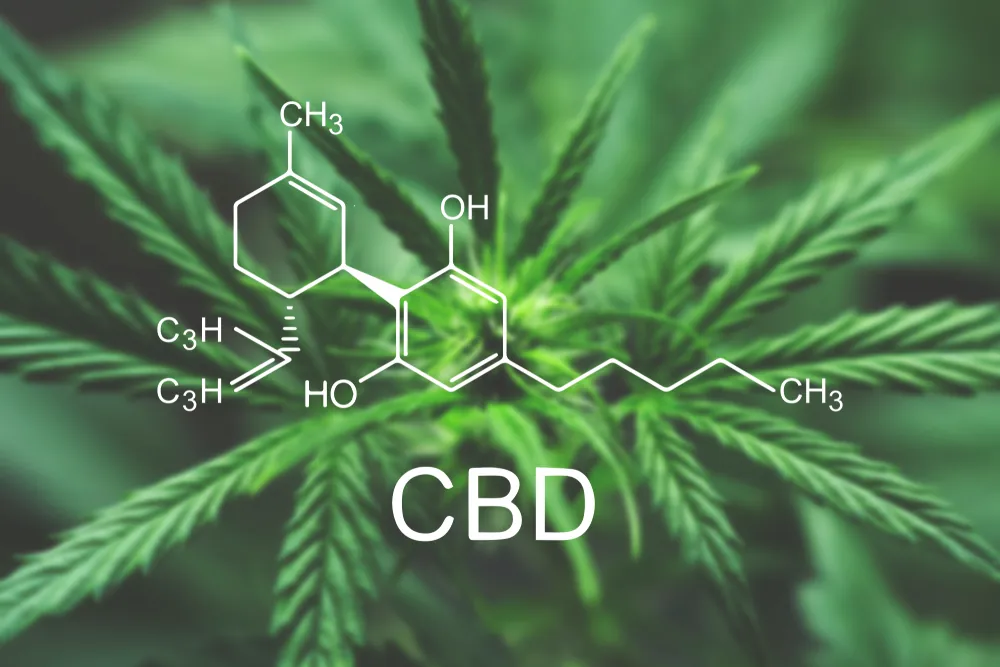Table of Contents
Introduction
In recent years, Cannabidiol, or CBD, has garnered significant attention for its promising therapeutic benefits. Derived from the cannabis plant, CBD is a non-psychoactive compound with reported efficacy in addressing various health conditions. In this expanded exploration, we delve into five disorders where CBD has demonstrated potential, outlining the pros supported by additional information and case studies.

Chronic Pain: Unveiling the Mechanism of Relief with CBD
One of the extensively documented advantages of CBD is its remarkable ability to alleviate chronic pain. Research suggests that CBD interacts with the endocannabinoid system, a key player in pain regulation. Whether it’s arthritis, back pain, or neuropathic pain, numerous individuals have reported a notable reduction in discomfort and an enhanced quality of life upon integrating CBD into their wellness routine.
Pros of CBD in Chronic Pain Management:
- Reduction in inflammation, a common factor in chronic pain conditions.
- Improved pain modulation through interaction with endocannabinoid receptors.
- Non-addictive nature compared to some traditional pain medications.
Anxiety and Depression: CBD as a Natural Therapeutic Option
Anxiety and depression, affecting millions globally, often find conventional treatments falling short. CBD emerges as a potential natural remedy, displaying promise in promoting calmness and relaxation. Early studies hint at CBD’s impact on serotonin receptors, contributing to its anxiolytic and antidepressant effects. Further research and case studies are essential for a comprehensive understanding of CBD’s role in mental health.
Pros of CBD in Anxiety and Depression Management:
- Potential serotonin receptor modulation leading to mood improvement.
- Non-psychoactive nature, minimizing the risk of adverse mental effects.
- Broad spectrum of application, catering to different types of anxiety and depression.

Sleep Disorders: CBD’s Influence on a Restful Night’s Sleep
For individuals grappling with sleep disorders like insomnia, CBD presents a natural alternative to traditional sleep aids. By addressing underlying issues such as anxiety and pain, CBD may enhance sleep quality. Users have reported faster sleep onset and a more restful sleep after incorporating CBD into their bedtime routine, showcasing its potential in improving sleep patterns.
Pros of CBD in Sleep Disorders Management:
- Addressing root causes of sleep disorders, such as anxiety and pain.
- Non-sedative nature, allowing for a more natural sleep-wake cycle.
- Potential to improve sleep architecture, leading to a more refreshing sleep.
Epilepsy: CBD’s Breakthrough in Seizure Management
A groundbreaking aspect of CBD research lies in its effectiveness in managing epilepsy, especially in cases resistant to traditional medications. The FDA’s approval of Epidiolex, a CBD-based medication, for certain types of epileptic seizures underscores CBD’s potential as a valuable option for individuals with epilepsy. Case studies detailing the positive impact of CBD on seizure control further support its role in this realm.
Pros of CBD in Epilepsy Management:
- Significant reduction in seizure frequency and intensity.
- Potential as an adjunct therapy when traditional medications prove ineffective.
- FDA approval signifies a recognized and regulated treatment option.
Inflammatory Skin Conditions: CBD’s Therapeutic Touch
Beyond internal health, CBD’s anti-inflammatory properties position it as a promising option for individuals dealing with inflammatory skin conditions like eczema and psoriasis. Topical applications of CBD-infused products may alleviate inflammation, itching, and discomfort associated with these skin disorders, providing relief without the side effects often linked to traditional treatments.
Pros of CBD in Inflammatory Skin Conditions Management:
- Localized anti-inflammatory action without systemic side effects.
- Moisturizing properties, promoting skin health alongside inflammation reduction.
- Potential for reducing reliance on corticosteroids with associated side effects.

Methods of CBD Consumption: Navigating the Spectrum
To fully harness the benefits of CBD, it’s essential to explore the diverse methods of consumption, each offering a unique experience. Understanding these methods empowers individuals to choose an approach that aligns with their preferences and addresses their specific health concerns.
Oral Ingestion:
Oral ingestion involves consuming CBD through oils, capsules, or edibles. This method offers long-lasting effects, making it suitable for those seeking sustained relief. CBD capsules provide precise dosing, while edibles come in various forms, offering a discreet and flavorful option. However, the onset of effects is generally slower compared to other methods, as the digestive system processes the CBD.
Inhalation (Vaping):
Vaping CBD allows for rapid onset and high bioavailability. Inhaling CBD delivers it directly to the bloodstream through the lungs, offering quick relief. However, it’s important to note the potential risk of lung irritation associated with vaping. This method is favored by those looking for immediate effects and is commonly used by individuals managing acute symptoms.
Topical Application:
Topical application involves applying CBD-infused creams, balms, or patches directly to the skin. This method is ideal for localized relief, addressing issues like joint pain or skin conditions. Topicals offer targeted effects without affecting the entire body, making them suitable for specific concerns. However, their effectiveness is limited when dealing with systemic conditions.
CBD-Infused Products: Exploring Diversity for Wellness
The market abounds with CBD-infused products, providing a diverse range of options to suit different preferences and needs. Understanding the array of products available allows individuals to make informed choices based on their lifestyle, desired effects, and the specific condition they aim to address.
CBD Oils and Tinctures:
CBD oils and tinctures are popular for their fast absorption and flexible dosing. Typically administered sublingually, these products allow the CBD to enter the bloodstream quickly. While they offer precise control over dosage, some users may find the earthy taste less appealing.
CBD Edibles:
CBD-infused edibles, such as gummies or chocolates, provide a convenient and discreet way to consume CBD. Edibles offer a variety of flavors and are favored for their simplicity. However, the onset of effects is slower compared to inhalation or sublingual methods, as the digestive system metabolizes the CBD.
CBD Skincare Products:
CBD has found its way into skincare products, including creams, balms, and serums. These topicals are designed for targeted relief of skin issues and may offer cosmetic benefits. While effective for localized concerns, such as inflammation or dry skin, their systemic impact is limited.
Conclusion
In conclusion, CBD’s therapeutic potential extends across a diverse range of disorders, presenting a natural and holistic approach to health and wellness. While ongoing research is necessary for a comprehensive understanding of its mechanisms and potential side effects, numerous individuals have reported positive outcomes upon integrating CBD into their healthcare regimen. As a crucial caveat, consulting with a healthcare professional before initiating any new treatment, including CBD, is imperative to ensure its appropriateness for individual needs.





